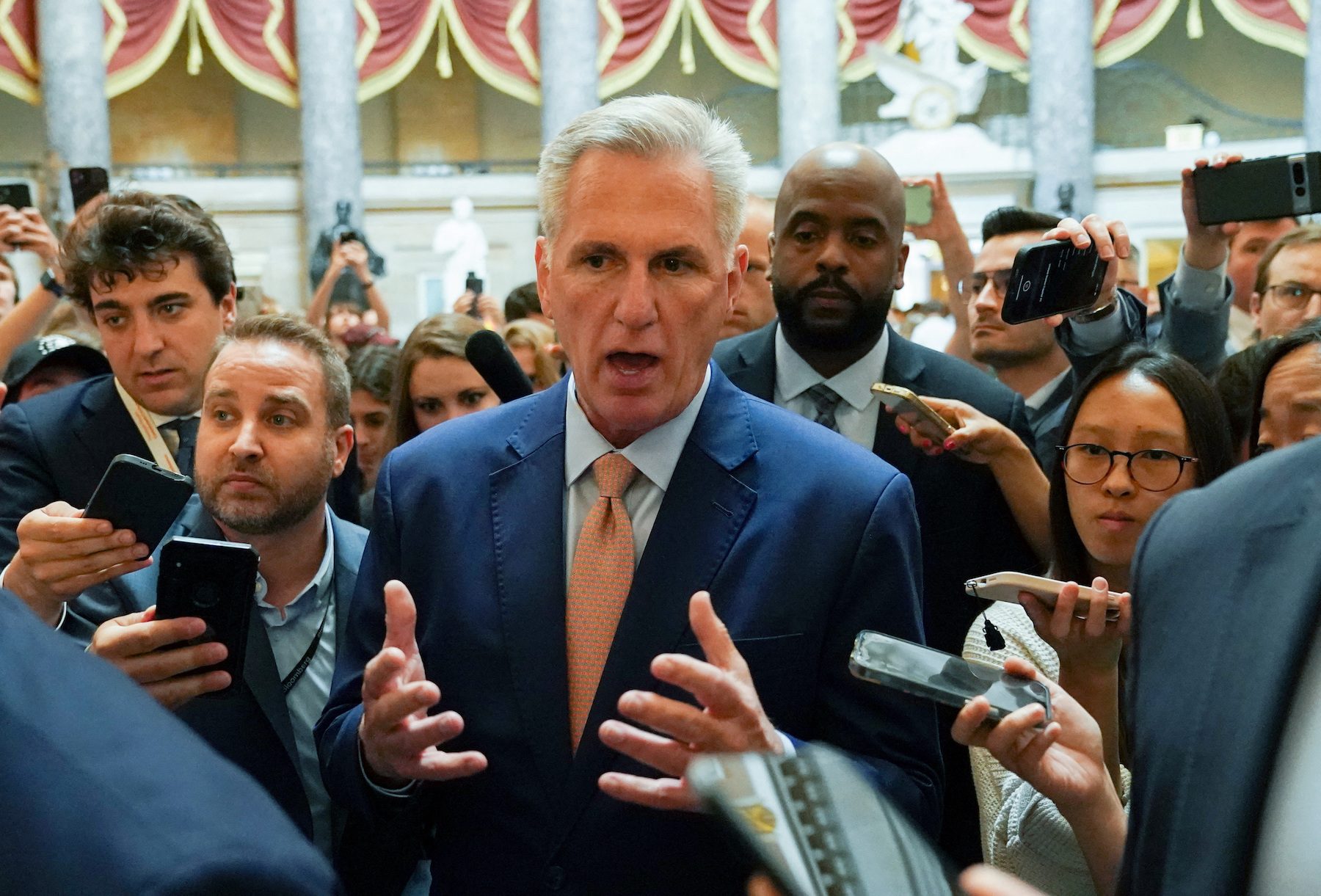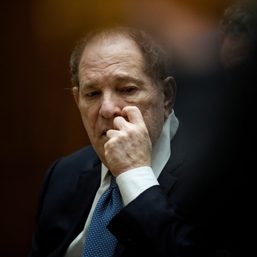SUMMARY
This is AI generated summarization, which may have errors. For context, always refer to the full article.

WASHINGTON, USA – Representatives of President Joe Biden and congressional Republicans ended another round of debt ceiling talks on Tuesday, May 23, with no signs of progress as the deadline to raise the government’s $31.4-trillion borrowing limit or risk default ticked closer.
The two parties remain deeply divided about how to rein in the federal deficit, with Democrats arguing wealthy Americans and businesses should pay more taxes while Republicans want spending cuts.
White House negotiators Shalanda Young, director of the Office of Management and Budget, and senior White House adviser Steve Ricchetti, met with their Republican counterparts for about two hours. They left without making substantive comments to media.
“We had very good discussions,” McCarthy told reporters.
Treasury Secretary Janet Yellen has warned that the federal government could no longer have enough money to pay all its bills as soon as June 1, which would cause a default that would hammer the US economy and push borrowing costs higher.
The two sides still disagree on spending and it was not clear when talks would resume, said Republican Representative Patrick McHenry, who chairs the House finance committee.
White House spokesperson Karine Jean-Pierre called the talks “incredibly tough.”
“Both sides have to understand that they’re not going to get everything that they want,” Jean-Pierre said at a briefing. “And what we’re trying to get to is a budget that is reasonable, that is bipartisan, that Democrats and Republicans in the House and Senate will be able to vote on and agree on.”
The lack of clear progress continued to weigh on Wall Street with US stocks sharply lower on Tuesday and global markets on edge.
Democrats want to freeze spending for the 2024 fiscal year that begins in October at the levels adopted in 2023, arguing that would represent a spending cut because agency budgets won’t match inflation. The idea was rejected by Republicans, who want spending cuts.
Biden wants to cut the deficit by raising taxes on the wealthy and closing tax loopholes for the oil and pharmaceutical industries. McCarthy said he will not approve tax increases.
McCarthy told reporters on Monday, May 22, that he expected to talk with Biden daily at least by telephone.
If and when Biden and McCarthy reach a deal, they will still need to sell it to their caucuses in Congress. It could easily take a week to pass a deal through the House and Senate, which would both need to approve the bill before Biden could sign it into law.
Hardline Republicans and progressive Democrats both voiced anger at the idea of compromise.
Democratic Representative Pramila Jayapal, who chairs the 101-member Congressional Progressive Caucus, said “the vast majority” of the group’s members would oppose any deal that included spending cuts or new work requirements for federal benefit programs for low-income Americans, both of which are major Republican demands.
Deadline debate
Some hardline members of the Republican House Freedom Caucus on Tuesday said they were skeptical of how firm the June 1 deadline is. Treasury has said the US could run short of cash as soon as June 1, or perhaps in the days following.
“Secretary Yellen needs to not only testify, but in writing, she needs to justify her dates that she’s given. Why is June 1 the drop dead?” Representative Ralph Norman said.
Top House Democrat Hakeem Jeffries dismissed that skepticism as unfounded.
“The June 1 date is a real one. Secretary Yellen continues to make that clear,” Jeffries told reporters.
Unless Congress raises the debt ceiling and allows the federal government to borrow money to pay its bills, the United States could default on its obligations, potentially tipping the nation into recession and plunging global financial markets into chaos.
Any deal to raise the limit must pass both chambers of Congress, and therefore hinges on bipartisan support. McCarthy’s Republicans control the House 222-213, while Biden’s Democrats hold the Senate 51-49.
Despite the gridlock, the two sides have found some common ground on several areas, including permit reform that will help energy projects move forward.
McCarthy on Monday said including some permitting reforms in the debt deal would not solve all of the related issues and that talks on further reforms could continue later, declining to address transmission for renewable energy.
The two sides are also discussing clawing back unused COVID relief funds and imposing stricter work requirements on two popular public benefit programs aimed at helping Americans out of poverty. – Rappler.com
Add a comment
How does this make you feel?

![[OPINION] A rebellion long overdue](https://www.rappler.com/tachyon/2024/06/mass-uprising-matrix-june-4-2024.jpg?resize=257%2C257&crop_strategy=attention)








There are no comments yet. Add your comment to start the conversation.